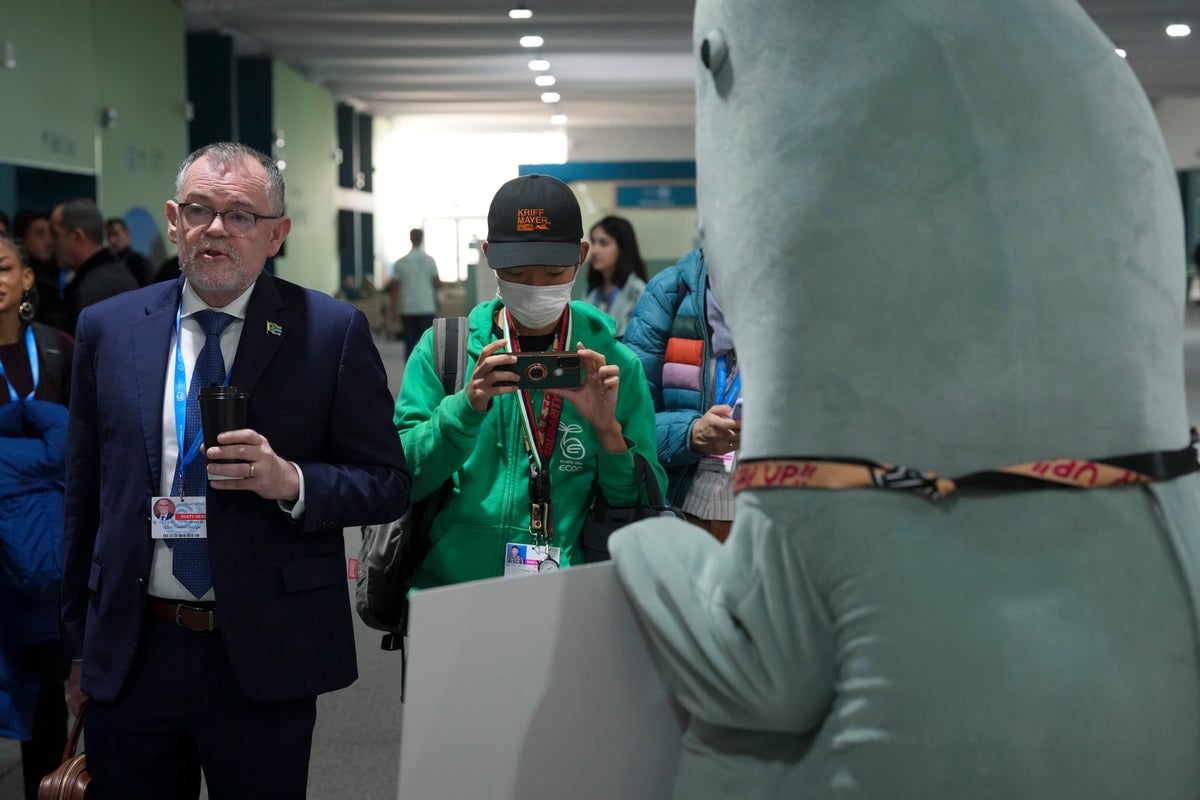
Countries at the United Nations climate summit amped up the pressure on themselves Friday by entering the last scheduled day of talks with no visible progress on their chief goals.
From the start, COP29 has been about climate finance — money that wealthy nations are obligated to pay to developing countries to cover damages resulting from extreme weather and to help those nations adapt to a warming planet. Experts put the figure at $1 trillion or more, but draft texts that emerged Thursday after nearly two weeks of talks angered the developing world by essentially leaving blank the financial commitment.
The talks often run into overtime as wealthier nations are pressed to pay for impacts caused largely by their emissions from centuries of burning fossil fuels. The late finish also adds pressure on Azerbaijan, the oil-rich nation presiding over this year's COP, or Conference of Parties.
In a statement late Thursday, the presidency struck an optimistic tone, saying the outlines of a financial package “are starting to take shape” and promised new draft texts on Friday.
“COP29 urges all parties to engage urgently and constructively in order to reach the ambitious outcome that we all need,” the statement said.
Earlier in the day, COP29 President Mukhtar Babayev convened a Qurultay — a traditional Azerbaijani meeting — where negotiators spoke to hear all sides. He promised to find "a way forward regarding future iterations.”
‘Slap in the face’ for text to have no financial figure
Independent experts say that at least $1 trillion is needed in finance to help transition away from planet-warming fossil fuels and toward clean energy like solar and wind, better adapt to the effects of climate change and pay for losses and damages caused by extreme weather.
Panama's Juan Carlos Monterrey Gomez said the “lack of commitment transparency feels like a slap in the face to the most vulnerable."
"It is just utter disrespect to those countries that are bearing the brunt of this crisis,” he said. “Developed countries must stop playing games with our life and put a serious quantified financial proposal on the table.”
Esa Ainuu, from the small Pacific island of Niue also blasted the lack of a number in the draft deal.
“For us in the Pacific, this is critical for us,” Ainuu said. “We can’t escape to the desert. We can’t escape somewhere else. This is reality for us. If finance is not bringing any positive, (then) why’re we coming to COP?”
Mohamed Adow, director of the think tank Power Shift Africa, also expressed disappointment at the lack of a figure. “We need a cheque but all we have right now is a blank piece of paper,” he said.
Nations big and small want more on slashing fossil fuels
Other areas that are being negotiated include commitments to slash planet-warming fossil fuels and how to adapt to climate change. But they’ve seen little movement.
European nations and the United States criticized the package of proposals for not being strong enough in reiterating last year’s call for a transition away from fossil fuels.
“The current text offers no progress” on efforts to cut the world’s emissions of heat-trapping gases, said Germany delegation chief Jennifer Morgan. “This cannot and must not be our response to the suffering of millions of people around the world. We must do better.”
U.S. climate envoy John Podesta said he was surprised that “there is nothing that carries forward the ... outcomes that we agreed on last year in Dubai.” The United States, the world’s biggest historic emitter of greenhouse gases, has played little role in the talks as it braces for another presidency under Donald Trump.
Days earlier, the 20 largest economies met in Brazil and didn't mention the call for transitioning away from fossil fuels. UN Secretary General Antonio Guterres, who was at that meeting, said official language is one thing, but reality is another.
“There will be no way” the world can limit global warming to 1.5 degrees Celsius "if there is not a phase out of fossil fuels,” Guterres said at a Thursday news conference.
___
Associated Press journalists Ahmed Hatem contributed to this report.
___
The Associated Press’ climate and environmental coverage receives financial support from multiple private foundations. AP is solely responsible for all content. Find AP’s standards for working with philanthropies, a list of supporters and funded coverage areas at AP.org.







